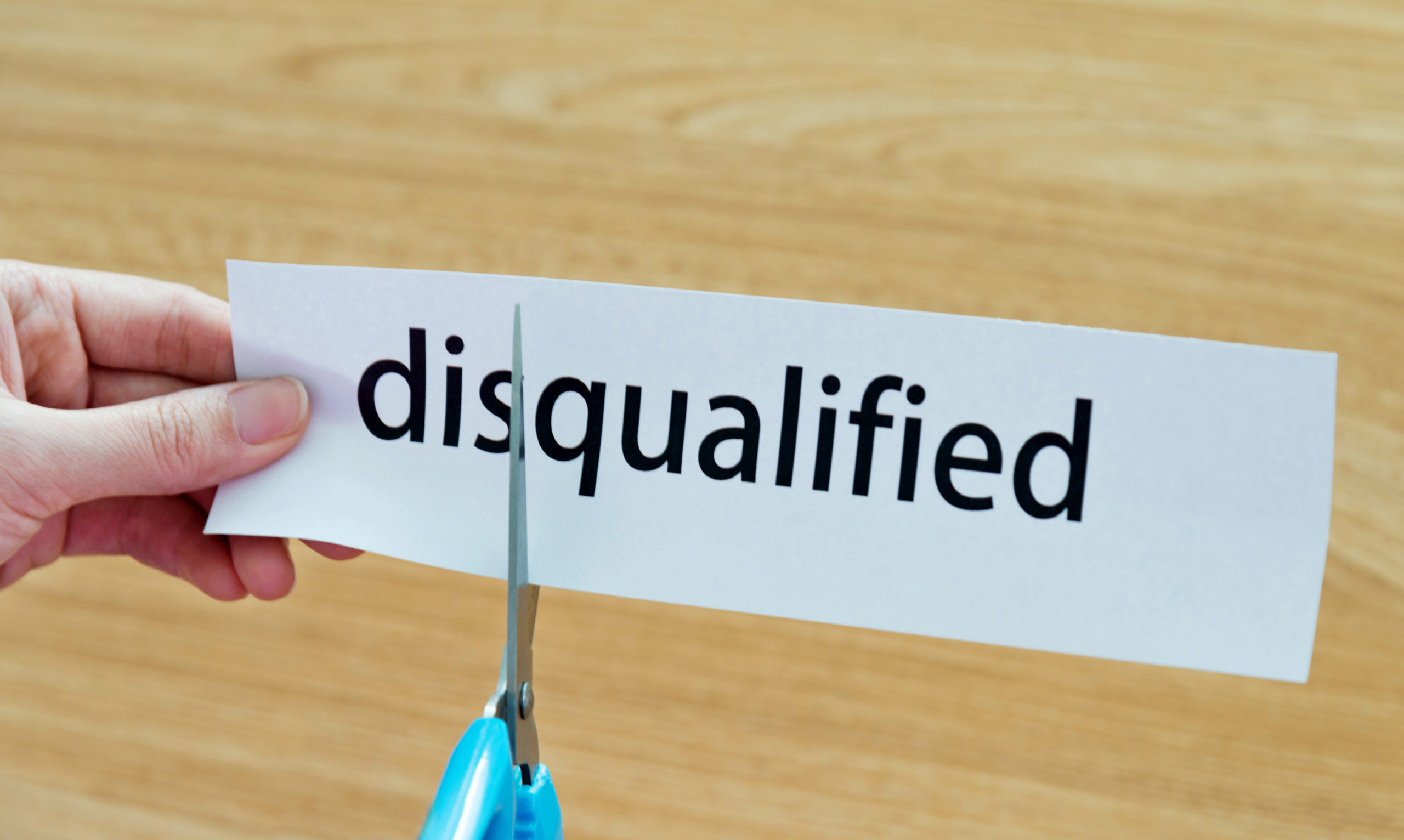
Current and Timely Information and Analysis About California Attorney Ethics in Practice

Every Lawyer Should Access Legal Ethics Guidance for Generative AI
The legal world has been awash in headlines about the use and implications of generative AI, or artificial intelligence. Recent incidents involving the use of generative AI in court submissions—including citing incorrect or non-existent case authority to a court—have demonstrated that lawyers need to exert special care in using generative AI and that lawyers need […]

Does Your Law Firm Have New Reporting Requirements under the Corporate Transparency Act?
The Corporate Transparency Act (“CTA”), effective January 1, 2024, includes new potential reporting requirements and rules for California law firms and for their clients. In general, the CTA is a new federal reporting requirement for companies to provide Beneficial Ownership Information (“BOI”)—the individuals who ultimately own or control the company— and “company applicants”—the individual who […]

Be Warned: CA In-House Corporate Counsel Must Register With State Bar
Remote practice and multistate jurisdictional practice (MJP) have been hot topics highlighted by the pandemic. However, we cannot discuss these subjects without considering the unauthorized practice of law (UPL). UPL is not just an issue for non-lawyers. Unfortunately, under California’s (and most other states’) rules and laws, it is also a concern for lawyers who […]

Using “Conflict Counsel” In Vetting Lateral Transitions
With the ever-increasing mobility of lawyers, accurately assessing conflicts of interest in any lateral transition is more important than ever. The consequences of getting it wrong are significant, ranging from potential disqualification and client liability issues to discipline.

The National Push to Change UPL Rule 5.5 Has Begun
On April 18, 2022, the Association of Professional Responsibility Lawyers (APRL), a national organization made up of over 400 lawyers, law professors, and judges from around the country who focus on legal ethics and professional responsibility, published and sent to ABA President Reginald Turner its long-awaited “proposal for the replacement of Model Rule 5.5 to […]

California Disqualification Decision and Claims of “Unreasonable Delay”
A frequent tool in the defense arsenal of lawyers facing a disqualification motion is a claim that there was an “unreasonable delay” in bringing the motion. Some lawyers and clients tend to assume, incorrectly, that a moving party’s knowledge of a disqualifying conflict will be presumed if the movant was a party to a former […]

Legal Ethics and Your Law Firm Partnership Agreement
You may agree that your firm’s partnership agreement, or shareholders’ agreement, and other firm governing documents, are critical to your firm’s business operations and success. And you would be right about that. But beyond business purposes, these firm agreements are critical to ensure compliance with your legal ethics duties. How so? Well-developed and drafted firm […]

California Ethics Opinions of 2021
With the new year quickly approaching, there is no better time than now for lawyers to take stock of their ethical obligations in order to minimize any risks of liability in the new year. A review of the ethics opinions published in California over this last year is a great place to start. Although ethics […]

Can a Trust Hold Ownership of a Law Firm? Nope.
A common question in our practice is whether a trust can hold an ownership interest in a California law firm. This issue arises because partners who have a revocable living trust as part of their estate planning wish to hold all of their assets, including law firm ownership, in the trust to obtain its tax, […]

Ethical Issues in Succession Planning at Your Firm
Planning for succession at your firm is a good idea for business reasons. It may mean that you can retire comfortably, having been compensated for the business you built, or it may mean that your family has a clear picture of what to expect if something unexpected should happen. Most importantly, however, a proper succession […]

Check Yourself on Attorney-Client Trust Accounts
Legal headlines recently have been awash in tales of wrongdoing related to attorney-client trust accounts. While your own trust account issues are, hopefully, less serious than grand theft, it’s a reminder that California law firm partners and managers should periodically review the rules for attorney-client trust account and regularly review compliance with the Rules. Here’s […]

Ethics Guidance For the New Normal of Attorney Work
As optimism grows for a return to some semblance of normal life, and the potential end of the pandemic may be in sight, California law firms are starting to face questions related to the details of their attorneys’ post-pandemic work life. Many of the questions related to attorneys working remotely already have come up. And […]

12 Steps to a Healthier Law Practice in 2020: Step 12 – Begin How You Want To End
2020 has shown us that so much in life is unpredictable, but your client relationships don’t necessarily have to be. Although you can’t foresee or control every aspect of your dealings with your clients, there are certain precautions you can take to better manage your risk of liability and other headaches. Start the new year off right by making sure that your engagement agreements are not only compliant and up-to-date, but that you set the tone for happy and healthy attorney-client relationships.

12 Steps to a Healthier Law Practice in 2020: Step 11 – Actions Speak Louder Than Words
“The duty of a lawyer, both to his client and to the legal system, is to represent his client zealously within the bounds of the law.” CA Bar Formal Opinion No. 2015-194 at 2 (citing Hawk v. Super. Ct. (1974) 42 Cal. App. 3d 108, 126). Unfortunately, California’s laws do not set adequate boundaries. Without enforceable rules and laws, civility in California is merely aspirational.

12 Steps to a Healthier Law Practice in 2020: Step 10 – Three’s A Crowd
Avoiding crowds is our reality at the moment in an effort to reduce the risk of contracting or spreading the COVID-19 coronavirus. Perhaps lawyers should take a cue from this pandemic and incorporate a similar precaution into our law practice in an effort to avoid unnecessary risks of liability.

12 Steps to a Healthier Law Practice in 2020: Step 9 – Location Matters
Fall is here, but most of us are still at home … many of us with our kids! After months of sheltering-in-place and social distancing, I think we can all agree that location does matter. In November 2018, 69 new or amended California Rules of Professional Conduct (“CRPC”) were thrust upon California’s more than 250,000 […]

12 Steps to a Healthier Law Practice in 2020: Step 8 – Communication is Key
How is summer over already? In November 2018, 69 new or amended California Rules of Professional Conduct (“CRPC”) were thrust upon California’s more than 250,000 lawyers. These rules were renumbered and reorganized to align with the American Bar Association’s (“ABA”) Model Rules and replaced the 46 ethics rules that California lawyers had been following for nearly 30 years. Despite […]

12 Steps to a Healthier Law Practice in 2020: Step 7 – The Practice of Law is Not a Dating Service
Happy July! In November 2018, 69 new or amended California Rules of Professional Conduct (“CRPC”) were thrust upon California’s more than 250,000 lawyers. These rules were renumbered and reorganized to align with the American Bar Association’s (“ABA”) Model Rules and replaced the 46 ethics rules that California lawyers had been following for nearly 30 years. Despite each […]
12 Steps to a Healthier Law Practice in 2020: Step 6 – Advise on the Law
California Rule of Professional Conduct 1.2.1 permits lawyers to provide advice to clients on how to comply with state law without the lawyer being subject to the specter of discipline for unavoidably facilitating the violation of federal law. Without legal representation, those who want to engage in conduct that is permitted under state law, but illegal under federal law, may not fully understand their rights, duties, and liabilities.
12 Steps To A Healthier Law Practice In 2020: Step 5 – Sharing Is Caring
This article comprehensively explores California's Rule of Professional Conduct 5.4 and the access to justice debate in California and around the country concerning whether lawyers should be permitted to share legal fees and law firm ownership with nonlawyers as highlighted by the recent California litigation involving LegalMatch.com and the antiquated rules and regulations of lawyer referral services.
12 Steps to a Healthier Law Practice in 2020: Step 4 – Money Does Not Buy Happiness
A law practice driven by money and power is risky in a service-based industry regulated by rules intended, in relevant part, to protect the public and the integrity of the legal system and to promote confidence in the legal profession. Lawyers who instead focus on the quality of their services should not only develop better client relationships, but any job well done ought to ultimately breed success. Therefore, money may not buy happiness, but professionalism may.
12 Steps to a Healthier Law Practice in 2020: Step 3 – Avoid Conflict
Putting effort and energy into avoiding conflicts is good business. Conflicts of interest issues can be very costly, both to the firm’s finances and its reputation. Investing in a good conflict system and educating each lawyer in the firm about the conflict rules and risks will be paid back in spades. Properly managing your risk of liability from conflicts of interest may result in turning down work or spending more time vetting a lateral hire, but it will save you money in insurance costs, litigation defense expenses, settlement payments, and fighting disqualification motions and disciplinary complaints.
12 Steps to a Healthier Law Practice in 2020: Step 2 – Treat Others the Way You Want to Be Treated
Happy February! In November 2018, 69 new or amended California Rules of Professional Conduct (“CRPC”) were thrust upon California’s more than 250,000 lawyers. These rules were renumbered and reorganized to align with the American Bar Association’s (“ABA”) Model Rules and replaced the 46 ethics rules that California lawyers had been following for nearly 30 years. […]
12 Steps to a Healthier Law Practice in 2020: Step 1 – Take Responsibility
The criterion that each California lawyer is responsible for his or her own competent (Rule 1.1) and diligent (Rule 1.3) ethical conduct is not new; however, three new ethics rules make clear how a lawyer can be held responsible for the conduct of others as well.
Sharing Confidential Information with a new Firm Can Create Risks
An increasingly common problem for partners considering departing a law firm and joining another is whether and to what extent the partner can share confidential business information about the lawyer’s practice with the new firm without violating legal and ethical obligations. It is difficult to imagine any law firm agreeing to bring in a lateral […]
California Supreme Court Approves Major Revisions to Ethics Rules
The California Supreme Court yesterday approved a significant overhaul of California’s legal ethics rules, moving California’s rules closer to the structure of the ABA’s Model Rules for the first time. The Court’s Order approved 27 rules as submitted last year by the State Bar’s Commission for the Revision of the Rules of Professional Conduct, 42 […]
California Supreme Court Overturns Jewel Doctrine
The Jewel doctrine is no more in California. In Heller Ehrman v. Davis Wright Tremain, the California Supreme Court held that a dissolved law firm has no property interest in fees generated after dissolution for hourly matters that were in progress when the firm dissolved. The immediate implication is that a lawyer who leaves a […]
Jewel Doctrine Will be Revisited by California Supreme Court
The California Supreme Court is expected shortly to issue a decision in its review of Jewel v. Boxer, the long-standing and besieged case that stands for the proposition that a dissolved law firm has a right to recover profits for matters that departed partners take from the failed firm, absent an agreement otherwise. The Court […]
The Legal Ethics of Lawyer Wellness
The recent report of the ABA’s National Task Force for Lawyer Well-Being, entitled “The Path to Lawyer Well-Being: Practical Recommendations for Positive Change,” is striking for several reasons. It’s the detailed description of the scope of the crisis in lawyer wellness, examined in a comprehensive analysis. It’s the tone of the report–an urgent call to action–which […]
Your Ethical Duties to Plan for Law Practice Succession
Unlike some states, California does not have specific legal ethics rules that require attorneys to adopt a law practice succession plan, there are several Rules of Professional Conduct that impose equivalent duties to plan. It’s not always easy to think about circumstances that could render you unable to continue practicing law–accidents, illness, disability, planned or unplanned retirement, or untimely […]
Navigating California’s Narrowing Attorney-Client Privilege
Two recent cases suggest that the attorney-client privilege in California is narrowing from its traditional robust scope. In LA County Board of Supervisors v. Superior Court (ACLU), the California Supreme Court held that law firm invoices are not categorically privileged, and may be subject to disclosure depending on the content of the invoices, and the […]
5 Law Firm Systems to Review for 2017
Properly managing a modern and profitable law firm in 2017 and beyond requires balancing vigilance and innovation. The legal headlines are full of emerging risks to law firms, including confidentiality breaches and technology disasters. The legal headlines are also full of competitive risks for law firms. Passive management of a law firm, even a successful one, is […]
Worry About the Conflicts that Your Software Probably Won’t Detect
Any law firm’s goal should be to avoid conflicts. That starts with detecting them, and today, most law firms have relatively robust conflicts-checking systems in place and in regular use. It’s fairly straightforward to deploy software that will keep a record of clients and permit searches to detect conflicts, or potential conflicts, when a new […]
Protecting the Attorney-Client Privilege for In-Firm Ethics Communications
When a client matter raises a legal ethics issue or, in the worst-case scenario, when a client accuses you of malpractice, it’s a good idea seek the advice of other lawyers at your firm. But maintaining the privilege of those communications within your firm, related to legal ethics issues or malpractice, is more difficult than it may […]
Tracking Proposed Revisions to California’s Rules of Professional Responsibility
California’s Commission for the Revision of the Rules of Professional Responsibility has proposed 68 new and amended rules for attorneys, and is seeking public comment on the proposed rules. California is the only state that whose professional responsibility rules do not track the ABA Model Rules. The Commission has issued an Executive Summary detailing the proposed and […]
California Supreme Court Will Review Arbitration, Advance Conflict Waivers, and Disgorgement of Fees
The California Supreme Court has granted review in Sheppard, Mullin, Richter & Hampton, LLP v J-M Manufacturing Co., Inc. to address several legal ethics issues of critical importance to California law firms. The Court of Appeal in the case below held that the question of whether the firm’s arbitration provision was enforceable was for the court, not the arbitrators, to […]
Can Advance Conflict Waivers Ever Be Informed Consent?
Recent examples in California courts have demonstrated the limits of advance conflict waivers and the effects of these limits. Needless to say, finding out that an advance conflict waiver is not effective to resolve a conflict can come as a shock, because it generally happens after-the-fact. Recent cases suggest that attorneys and firms who use advance conflict […]
Is the Arbitration Provision in Your Firm’s Fee Agreement Properly Drafted?
Some recent California cases have illustrated the importance of a properly drafted arbitration provision in attorney-client fee agreements, and what is at stake. Typically, arbitration is vastly superior to litigation for law firms to resolve disputes with clients related to representation, including fee disputes. Arbitration is confidential, generally has limited discovery and streamlined procedures, and can […]
Connect with Caution: Don’t Let Social Media Indirectly Compromise Client Confidentiality
We frequently repeat the refrain that client confidentiality in California is not a gray area: you must keep client information confidential. Most attorneys (hopefully) by now know not to divulge confidential client information on social media. Some attorneys have learned the hard way that casual comments about clients or client matters on social media is […]
Mistakes were Made? Learn from the Post-Mortem Analysis
Assume that your firm has made a mistake that led to an ethical lapse: a conflict of interest with no informed consent, or a similar misstep. Once the actual fallout from the situation subsides, from a compliance perspective the relevant question is whether you can learn from these circumstances and avoid similar issues. For any law firm […]
Should Non-Attorneys Be Permitted to Practice (Some) Law?
Attorneys and bar associations nationwide are grappling with a few hard truths about the current practice of law. The legal profession is a highly regulated profession, including strict requirements for any person to be authorized to practice law. Among other things, you have to go to law school (mostly) and take and pass the bar exam for […]
Advance Conflict Waivers, Arbitration–and Fees–Tossed for Conflicts
The recent Second District Court of Appeal opinion in Sheppard, Mullin, Richter & Hampton, LLP v J-M Manufacturing Co., Inc. sent a shock wave through California law firms. The case started when a firm sued a former client for $1.3 million in unpaid fees, after it had been disqualified from a matter for that client because of conflicts. The case ended […]
5 Legal Ethics Questions for Your In-House Legal Team
There is an emerging consensus that the role of in-house legal departments is changing dramatically, and these changes raise significant legal ethics issues for in-house legal teams. The workload for in-house lawyers, which has been substantial for some time, is increasing in many industries, as in-house lawyers navigate significant increases in regulatory issues and compliance. And the composition […]
Negotiating for Your Clients: How Far is Too Far?
California attorneys have a well-established duty to be zealous advocates for their clients’ interests. But the boundaries for that zealous advocacy are not always clear. The California Rules of Professional Conduct do not contain a rule analogous to ABA Model Rule 4.1 and related comments, addressing the boundaries of acceptable puffery, which is ok, and false representations of material fact, […]
Considering Litigation Funding? Ask Some Questions.
Litigation funding appears to be receiving increased attention and it is often presented as a way for parties and attorneys to mitigate the risk of large and risky cases. If true, this would be a good thing, right? Certainly many parties who have meritorious cases decline to bring them because they, or their attorneys, cannot […]
How to Stay on Top of New Rules Affecting Your Practice
Several significant amendments to the Federal Rules of Civil Procedure became effective on December 1, changing obligations for attorneys and parties in civil litigation in federal court. Significant amendments to California’s Code of Civil Procedure, affecting demurrer procedure, 998 offers, peremptory challenges, expedited trials in limited jurisdiction cases, among other changes, also took effect this […]
California Courts Giveth Pro Hac Vice Admission. . .and Taketh Away
An emerging trend suggests that California courts are becoming more strict in enforcing the technical rules for pro hac vice admission, and more restrictive in granting pro hac vice admissions for non-California attorneys who repeatedly appear here. The California Bar has long been known as relatively strict about practicing law in California: it has no reciprocity […]
5 Reasons to Seek Independent Outside Ethics Counsel
Attorneys tend to view ethics compliance as something very personal, and firms correctly views ethics issues as an internal matter. Attorneys would not hesitate to engage outside counsel if a legal malpractice claim arose, but many do not yet have dedicated outside ethics counsel to advise as part of ongoing daily firm operations. Increasingly, there […]
5 Ethics Considerations for Alternative Fee Arrangements
Alternative fee arrangements are fashionable at the moment. Clients, at least, appear keen to structure outside counsel fees based on a variety of arrangements, some that share risks, some that create incentives for certain outcomes, and others that encourage efficiency. Many attorneys are less than enthused about alternative fee arrangements, perhaps viewing them as new […]
Tweeting Your Way Afoul of Attorney Advertising Rules
In Formal Opinion 2012-186, California’s Standing Committee on Professional Responsibility and Conduct addresses when and how attorney’s posts on social media may constitute attorney advertising within the requirements of California’s Rules of Professional Conduct and related governing statutes. In general, a social media post by an attorney falls within the professional responsibility rules and standards […]
The Catch-22 of Seeking Judicial Recusal: Too Much or Not Enough?
A recent Order from the Central District of California illustrates the challenge litigants face when seeking judicial recusal of a federal judge: the request will be denied if you don’t include enough details about potential bias; however, including lots of details about potential judicial bias can be awkward, to say the least, if your request […]
5 Issues to Analyze When Your Law Firm is Considering a Merger
Law firm mergers are a fact of life for modern law practice. News of law firm mergers, or news of merger discussions, are a daily staple of practicing law. If your firm is considering a merger with another firm, you should independently analyze how the merger may impact your clients and your practice, and how […]
Analyzing Conflicts of Interest When You Join a Matter in Progress
It is axiomatic that for new matters, attorneys and firms perform a conflicts check to determine whether there are any actual or potential conflicts, because the California Rules of Professional Conduct, Rules 3-310(B), (C), and (E), prohibit attorneys from representing clients with adverse interests, absent informed written consent of the clients. But when an attorney substitutes […]
Can You Sue Your Own Current Clients? Umm…No.
In Abedia v. Sheikhpour, the California Court of Appeal addressed, and resolved, an issue that may seem self-evident: an attorney cannot sue his or her own current clients, and a client cannot waive actual conflicts in that circumstance. In Abedia, in the underlying case, plaintiffs sued defendant alleging fraud related to an investment in a gas […]
The Limitations of Advance Conflict Waivers for Corporate Subsidiaries
In Lennar Mare Island, LLC v. Steadfast Insurance Company, a district court judge in the Eastern District of California granted a motion to disqualify defendant’s law firm, and illuminated the conflict analysis for advance waivers and corporate subsidiaries. The case involved a dispute regarding environmental clean-up obligations for Mare Island, a former U.S. Navy base […]
Can You Make Ethics Compliance a Competitive Advantage?
Among the people who think about the future of law practice and of lawyers, there is a developing recognition that ethics compliance can be a powerful competitive advantage in practice. Most lawyers view ethics compliance as a necessary (it is about as necessary as it gets) part of practicing law, but would you characterize ethics […]
When is an Attorney’s Blog Considered Advertising under Legal Ethics Rules?
The Standing Committee on Professional Responsibility of the State Bar of California earlier this year issued a detailed advisory Opinion regarding when an attorney’s blog should be subject to the advertising requirements of the Rules of Professional Conduct and the State Bar Act. Formal Opinion Interim 12-0006 provides that attorney blogs are subject to attorney […]
5 Legal Ethics Compliance Systems to Review Today
Ensuring that every element of your practice complies with the highest ethical standards is not just required, it is also good business. Or, to be more specific, permitting an ethical lapse is very, very bad business. A review of these systems may lead to more questions than answers. But asking the right questions is the […]
Can a California Attorney Advise Clients Regarding Medical Marijuana?
The Bar Association of San Francisco in June issued Opinion 2015-1, asserting that a California attorney may ethically represent a California client regarding a medical marijuana dispensary and related matters, providing that the attorney advises the client of potential liability under federal law and is aware of the attorney’s own risks under federal law. The […]
Is Your Law Practice Due for a Legal Ethics Audit?
As a practicing lawyer, you may have missed an emerging consensus on something that affects your practice every day: your firm should regularly conduct a detailed ethics audit. The changing legal landscape has created its own ethics challenges. Technology has made it easier for boutique firms to exist, and to compete against large firms. But […]
Keeping Up with Evolving Attorney Competence Requirements
The Standing Committee on Professional Responsibility of the State Bar of California earlier this year issued a detailed advisory Opinion on the scope of an attorney’s duties of competence in connection with technology issues in litigation, specifically regarding electronically stored information (“ESI”) and e-discovery. Formal Opinion No. 2015-193 provides that an attorney has an ongoing […]
Fearing Fear Itself in Legal Ethics
Many practicing attorneys could summarize their legal ethics compass with precisely two time-worn bromides from law school. Don’t sleep with your clients. Don’t commingle your clients’ funds. These are still words to live by. So if you are complying, then keep up the good work. These concepts stuck with us because law schools do an […]
Disclaimer
Disclaimer
About the Editor

With more than 25 years of experience in law firms—including large, medium, and small firms, and running his own law firm for years—Mr. O’Rielly counsels and advises California law firms on critical issues at every stage of law firm life. He provides insight, analysis, and judgment to California law firms seeking to solve their most important challenges.
Subscribe to the blog
Topics
- Attorney-client relationships
- Attorney marketing
- Client confidentiality
- Client solicitation
- Conflicts of interest
- Disqualification Motions
- Fee agreements and funding
- Fiduciary duties
- In-house ethics
- Judicial ethics
- Legal ethics audits
- Legal Ethics Rules
- Professionalism and Civility
- Representation ethics
- Technology ethics
- Unauthorized practice
- Virtual practice and outsourcing
